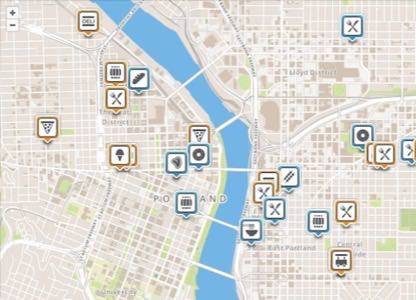
Foursquare just made what it called “a little announcement”, but it’s really not little at all. It’s switching away from the Google Maps API to OpenStreetMap. For the map images, it hired MapBox, a start-up that makes pretty maps out of OpenStreetMap data. Starting with foursquare.com, foursquare’s maps now use MapBox Streets.

Foursquare cites Google’s decision to start charging for access to the Google Maps API in October as the reason it started looking for alternatives. But it sounds like it just made more sense to the team philosophically, too. “We love the idea of open data,” the announcement says, “and were happy to try it out.”
Lots of businesses built on top of Google Maps have been switching providers lately. Foursquare’s blog post points to StreetEasy, Nestoria and Fubra, all of whom went with open data. We also covered the decision by AllTrails, a network for outdoors enthusiasts, to start backing away from Google before its launch.
Google’s decision to charge for API access could not have been made lightly, especially considering the importance of Foursquare. But it may have been inevitable. “Overall it’s healthy for the ecosystem,” John Musser of Programmable Web told us when Google announced the change. “Services need to be sustainable with business models that work for both sides.”
It’s also hard to ignore Google’s efforts to compete with foursquare directly. Its mobile Hotpot app, Google Places recommendations and Google Latitude check-ins all seem like ways to crowd out Foursquare, although why there are so many overlapping Google apps for this is hard to understand. There are also Google+ check-ins, which will be the social glue that ties them all together.
So now Foursquare and Google are direct competitors. When you use Foursquare Explore on the Web to search for places, you’ll be taking eyeballs away from Google. Moreover, Foursquare is now a major patron of open-source software. Not only will it support the work of the people building OpenStreetMap, it will also let Foursquare contribute to the open-source Leaflet Javascript library, which powers the maps.

Foursquare’s iPhone and Android apps won’t be affected, because they use the mapping components integrated with those operating systems, both of which use Google Maps. But Foursquare’s data are now independent of Google, and that’s no “little announcement.”

















